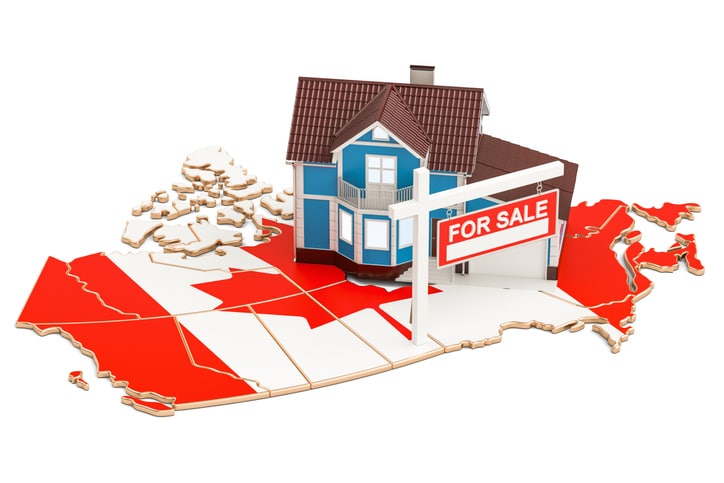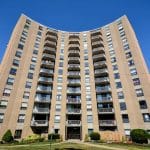Source: Globe Newswire —
TORONTO, Jan. 18, 2023 (GLOBE NEWSWIRE) — Following an era of exorbitant hyperinflation in Canadian luxury real estate, new post-pandemic benchmarks were established in 2022 as the housing market responded to a cascade of stressors. Against a backdrop of mounting economic uncertainty, steep interest rate hikes, escalating inflation, a stubborn deficit of housing inventory and sweeping housing taxation and regulatory changes, prospective luxury real estate sellers and buyers withdrew strategically from the market in anticipation of greater opportunity in 2023. By the end of 2022, the country’s major metropolitan areas emerged from a historic chapter of hyperinflation into a new era where consumer demand for housing and housing mobility remained unrelenting, just as market conditions verged on favouring buyers.
According to new data released by Sotheby’s International Realty Canada, luxury sales activity in the Greater Toronto Area (Durham, Halton, Peel, Toronto and York) receded through the course of 2022, as listings supply faded, and buyers temporarily retreated. Residential real estate sales over $4 million (condominiums, attached and single family homes) fell 24% year-over-year, while ultra-luxury sales over $10 million on Multiple Listing Service (MLS) declined 29% from 2021 levels. Sales of condominiums, attached and single family homes over $4 million fell 29%, 25% and 23% year-over-year, respectively. Overall, $1 million-plus residential sales saw an annual decline of 28%, despite underlying demand for top-tier housing and housing mobility.
Vancouver’s luxury real estate market experienced a sharp decline in sales activity following the first quarter of the year as prospective buyers, frustrated by an era of heated market conditions, paused in anticipation of more favourable opportunities ahead. Overall, residential sales over $4 million and $10 million closed at volumes 30% and 46% below 2021 levels. Luxury condominium sales over $4 million remained stable with a nominal 3% year-over-year uptick, while attached home sales declined 73%. The city’s $4 million-plus single family home saw sales decrease 32% year-over-year, while ultra-luxury single family home sales over $10 million fell 46%. Overall, residential real estate sales over $1 million were down 29% in 2022 from the city’s record sales volume in 2021.
Montreal’s luxury real estate market tempered to more balanced conditions over the course of 2022. The city closed the year with $4 million-plus residential real estate sales nearly on par with 2021 levels, with a modest 2% year-over-year uptick, while sales activity over $1 million experienced an 18% annual decline. Overall, $1 million-plus single family home sales were down 22% year-over-year, while attached home and condominium sales over $1 million fell 23% and 5%, respectively.
Calgary’s luxury real estate market out-performed that of Canada’s largest major metropolitan areas, as the city’s strengthening economic fundamentals ignited consumer confidence and civic optimism and as interprovincial-migration lifted demand for the city’s conventional and top-tier housing. As a result, the city’s top-tier market rebounded in 2022, and sales over $1 million rose 16% year-over-year from 2021 levels. Sales over $4 million increased 50% to six properties sold. $1 million-plus single family and attached homes sales saw 12% and 68% annual sales gains, respectively, while condominium sales over $1 million experienced a significant 79% year-over-year increase.
“After an era of intense hyperinflation, new post-pandemic benchmarks for Canadian conventional and luxury real estate were established in 2022 as the market processed the impact of aggressive interest rate hikes and the effects of an increasingly uncertain global and domestic economic climate. By the end of the year, luxury housing segments in several major metropolitan areas were on the brink of buyers’ market conditions, while others had very clearly shifted into this territory,” says Don Kottick, President and CEO of Sotheby’s International Realty Canada. “The market is now on the verge of another important adjustment, this time in terms of pricing. It has taken several months for home sellers to realize the impact of the changing market on the market values of their properties. As new property listings come onto the market in 2023, their pricing will shift to meet current realities. This will start to unlock long-awaited opportunities for buyers and upsizers to purchase homes that meet their lifestyle needs as they acclimatize to the market.”
According to Kottick, a fundamental deficit of housing across every property type and price category will continue to challenge major metropolitan housing markets, and in particular, Vancouver and Toronto. Although housing prices are expected to adjust downward to realistic market norms in several major metropolitan areas, pent-up demand for housing mobility as well as anticipated population gains from immigration will continue to support housing values in the long term. The “Prohibition on the purchase of residential property by non-Canadians Act” (the “Foreign Buyers Ban”) that came into force January 1, 2023, as well as demand-side policies and taxes will have a negligible effect on affordability, according to Kottick, and have largely served to confuse and frustrate prospective new Canadians at a time when the country is aiming to attract skills, talent and capital.
2022 Top-Tier Market Highlights
Vancouver
Following a frenzied launch into 2022 that propelled luxury real estate sales and prices to record highs through the first quarter of the year, the City of Vancouver abruptly shifted course, adjusting towards a new post-pandemic reality as sales activity and prices calmed in response to climbing mortgage rates and consumer inflation. Despite pent-up consumer demand and widespread need for housing mobility, the city’s luxury market settled to balanced conditions by year’s end as potential transactions were thwarted by sellers with pricing expectations that no longer aligned with market realities, and as buyers prepared to wait for fresh supply at adjusted prices to be introduced in the months ahead.
As home sellers’ and buyers’ willingness to engage in the market faltered in face of swiftly changing conditions, the city’s already scant inventory of luxury real estate evaporated, and with it, sales activity. Overall, luxury residential real estate sales over $4 million (condominiums, attached and single family homes) declined 30% year-over-year to 299 properties sold in 2022, with 13 of these sold above $10 million on Multiple Listing Services (MLS), down 46% annually. Overall, residential real estate sales over $1 million fell 29% to 4,166 properties sold in 2022.
$4 million-plus sales activity in the last half of 2022 reflected the market’s sharp adjustment to multiple interest rate hikes and the flight of real estate buyers and sellers to the sidelines as a result. Despite strong underlying demand, evaporating luxury supply and increasing market uncertainty resulted in a dramatic moderation of the luxury market. Between July 1 – December 31, 2022, residential sales over $4 million decreased 50% to 88 properties sold, while $10 million-plus sales on MLS fell to five properties sold compared to eight sold in the last half of 2021. Overall, $1 million-plus sales were down 48% to 1,346 properties sold in the latter half of 2022.
Post-pandemic, the City of Vancouver had experienced its initial luxury housing rebound in its single family home segment, resulting in historic highs in sales activity and pricing that peaked in the first quarter of 2022. Through the remainder of the year however, the city’s luxury single family home market normalized. Overall, in 2022, single family home sales over $4 million receded 32% year-over-year to 257 properties sold, while ultra-luxury sales over $10 million fell 46% to 13 sold in 2022. $1 million-plus single family home sales were down 41% year-over-year to 1,744 homes sold.
In the latter half of 2022, luxury single family home sales reflected the market’s rapid shift towards balanced conditions. $4 million-plus home sales fell 51% to 75 homes sold between July 1– December 31, while ultra-luxury home sales over $10 million declined to five homes sold compared to eight sold in the latter half of 2021. Overall, sales over $1 million were down 51% year-over-year to 597 homes sold in the last half of 2022.
The city’s chronically under-supplied luxury attached home market also normalized through the course of 2022, as sales over $4 million declined to three homes sold compared to 11 sold in 2021. As in 2021, there were no ultra-luxury attached home sales over $10 million reported in 2022. Overall, 915 attached homes sold over $1 million in 2022, down 30% year-over-year overall. Luxury attached home sales were quiet in the last half of 2022, reflecting the market’s dramatic normalization. There were no sales recorded above $4 million between July 1 – December 31, compared to three sold in the last half of 2021. Overall, $1 million-plus attached home sales were down 47% year-over-year during this period with 305 homes sold.
Despite strong demand and activity in Vancouver’s luxury condominium market in the first half of 2022, the market calmed in the latter half of 2022, as prospective buyers and investors withdrew from the market in anticipation of continued market moderation. Luxury condominium sales over $4 million were stable, with a nominal 3% year-over-year increase to 39 units sold in 2022, while the ultra-luxury market above $10 million remained quiet, as was the case in 2021. $1 million-plus condominium sales saw an 8% annual decline to 1,507 units sold in 2022.
















